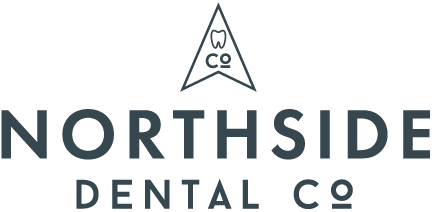Are you someone without dental insurance wondering how to afford dental work without insurance?
Good dental care is necessary for overall health. However, it can also be expensive depending on the procedure or treatment you need.
For those with insurance, many common dental procedures are paid for in part or full. But for those without dental insurance, getting affordable dental care can be challenging.
Fortunately, there are ways to cut down on dental costs with no insurance.
If you’re thinking “I can’t afford a dentist, what can I do?”, keep reading.
In this article, we’ll be looking into the costs of the most common dental procedures and answering the question, “How much is the dentist out of pocket?” You’ll learn how to afford dental care without insurance and dentists that accept no insurance in Richmond, VA.
How Much Is the Dentist Out of Pocket?
Some dental work will be more expensive than others, so dental cost with no insurance is procedure-specific.
Here’s a list of the most common dental procedures and what they cost out of pocket.
Routine Cleanings
Dentists recommend that you schedule and attend routine cleanings every 6-12 months. These appointments give dentists an opportunity to:
- Clean your teeth
- Check the health of your teeth and gums
- Let you know if there are any issues you need to address
The out-of-pocket price for routine dental cleanings is between $90-$125. For a more comprehensive appointment that includes x-rays, an exam by the dentist, and a cleaning, you can pay around $350-$400.
However, costs vary depending on your location in the U.S. and the specific dental practice you attend.
One common misconception about paying for “just a cleaning” is that you can show up to a new dental office (or one you haven’t been to in awhile) and pay for a cleaning only. Legally, dentists can’t see you at their office without an up-to-date exam (usually needed every 6-8 months). So, you might be shopping around for a standard cleaning, however, remember that dentists are also required to examine your teeth if you’re going to be seen at that practice.
Cavity Fillings
Cavities are small holes in your teeth that develop from tooth decay.
They form when you don’t remove bacteria and plaque on your teeth through good oral habits, like daily brushing and flossing. These bacteria produce acids that break down the hard outer layer of your teeth (enamel).
When your teeth develop cavities, a dentist can remove the decay and fill it with a material that restores the tooth. If you don’t get a dentist to fill cavities, they can progress deeper into your tooth affecting nerves and the tooth root.
Dental fillings cost around $50-$150 per tooth for a silver filling and $90-$250 per tooth for a tooth-colored filling.
Root Canals
Root canals get a bad reputation for being incredibly painful. However, a root canal is actually a relatively quick, pain-free procedure that relieves pain and saves your natural tooth.
Remember above when we said that an untreated cavity can affect deeper tissues in a tooth? Well, that’s when a root canal is necessary.
A dentist (or endodontist, a dentist specialized in treating dental pulp) will clean out the infection from the inside of your tooth (the pulp). Then, they’ll fill and seal the tooth to keep it from future infection.
The cost of a root canal might vary based on which tooth is affected, but you can expect to pay around $1,000 for the procedure.
Tooth Extractions
Sometimes a dentist will need to completely remove a tooth from your mouth.
Dentists often pull a tooth for one of three reasons:
- The tooth is severely decayed
- There’s a bad tooth infection
- Teeth are overcrowded
Before a dentist performs an extraction, they’ll give you a local anesthetic or general anesthetic to keep you from experiencing pain.
The dental cost with no insurance for a tooth extraction is around $350 per tooth.
Crowns
Crowns are tooth-like caps that dentists place on teeth to:
- Strengthen enamel
- Fix chips, cracks, or breaks
- Restore worn-down teeth
- Secure certain dental bridges
They’re a procedure that restores normal tooth function and appearance. Crowns are also a cheaper alternative to veneers for those looking for a different smile.
The price of a crown mostly depends on the material the dentist uses to make the crown:
| Crown Material | Crown Price |
| Porcelain fused to metal (PFM) | $500-$1,500 |
| Gold (all-metal) | $600-$2,500 |
| Zirconia | $800-$3,000 |
| E-max | $800-$3,000 |
Each of these crown types has pros and cons, so you’ll want to consult with your dentist about which kind is best for you.
Bridges
Dental bridges are a procedure dentists use to fill in missing teeth, restoring mouth function and appearance. They’re strong and can last up to 10+ years with good oral hygiene habits.
There are different types of bridges with varying prices. Here are the four main bridges and their costs:
| Type of Bridge | Average Cost |
| Maryland | $1,500-$2,500 |
| Traditional or Cantilever | $2,000-$5,000 |
| Implant-supported | $5,000-$15,000 |
Teeth Whitening
Another common dental procedure is in-office teeth whitening. This 2 hour procedure helps give you a same-day whiter smile.
Many people like to get teeth whitening treatment before a major life event, like a wedding. It’s also beneficial for those who regularly drink coffee and other drinks that commonly stain teeth.
However, you need to have healthy teeth and gums (no decay) and certain dental materials (e.g., crowns, fillings, partials) can’t be whitened.
Zoom Whitening is the procedure most offices provide and it costs between $200-$500 out of pocket.
Now that you know more about some of the common dental procedures and their out-of-pocket costs, let’s look at how to afford dental care without insurance.
How to Afford Dental Work Without Insurance
Even without dental insurance, there are ways to get affordable dental care.
Here are three ways to reduce dental costs with no insurance.
1. Practice Good Oral Hygiene
From our list above, the cheapest dental service is regular check-ups. As you develop more severe oral problems, the cost of the procedure goes up.
So, one of the best ways to cut down on dental costs is to develop good oral hygiene. Good oral habits include:
- Brushing twice a day
- Flossing every day
- Rinsing with mouthwash daily
- Avoiding hard candies or not chewing on hard objects (e.g., ice, pens, etc.)
- Wearing a mouthguard when playing contact sports
By avoiding serious oral issues, the most you’ll pay for is dental cleanings once or twice a year.
2. Free/Low-cost Dental Care
Another answer to “I can’t afford a dentist, what can I do?”, is looking for free or low-cost dental options in your area.
- Dental Schools: Many dental schools offer reduced dental fees. However, dental students perform the procedures and appointments can take a few hours.
- Local Resources: You can also check in with your local health department. They may know of programs in your area that provide free or low-cost, affordable dental care.
- Medicaid: Medicaid is a government program that provides insurance to low-income individuals. For most individuals under 21, dental coverage is provided. For those over 21, emergency dental coverage is provided and sometimes comprehensive coverage.
3. Membership Savings Plan
Lastly, some dental offices offer patients a Membership Savings Plan. A Membership Savings Plan provides free and discounted services to those who pay a yearly fee.
For example, Northside Dental Co. in Richmond, VA has a Membership Savings Plan that costs $399 per year. Those who pay this fee receive insurance-like benefits, including:
- Two comprehensive exams
- Yearly x-rays
- Two cleanings
- Two fluoride treatments
- Discounts on major and minor dental procedures
Instead of paying thousands of dollars for insurance or out-of-pocket expenses, a Membership Savings Plan provides affordable dental care for a small, yearly fee.
Professional, Affordable Dental Care in Richmond, VA
It’s easy to find dentists that accept no insurance. However, if you don’t have insurance, you’ll be paying for all your procedures out of pocket—some procedures can be very expensive.
So, how much is the dentist out of pocket?
Some of the most common dental procedures and their out-of-pocket costs include:
- Routine cleanings: $100-$400
- Cavity fillings: $50-$250/tooth
- Root canals: $1,000
- Tooth extractions: $350/tooth
- Crowns: $500-$3,000 (depends on number of teeth and crown material)
- Bridges: $1,500-$15,000 (depends on type of bridge)
- Teeth Whitening: $200-$500
If you don’t have dental insurance and are wondering how to afford dental work without insurance, you have some options:
- Practice good oral hygiene to limit your dental expenses to routine cleanings
- Look into local or state resources that provide affordable dental care
- Research local dentists offices that offer a Membership Savings Plan
At Northside Dental Co in Richmond, VA, we want everyone to have access to great dental care. That’s why we:
- Accept most major dental insurance
- Have a Membership Savings Plan that provides free and discounted dental services
- Offer CareCredit, which allows patients to make monthly payments
So whether you have dental insurance or not, we’re here to help make dental care available and affordable for everyone.
Schedule an appointment online or give us a call at 804-767-3410 to make your dental health a top priority.

